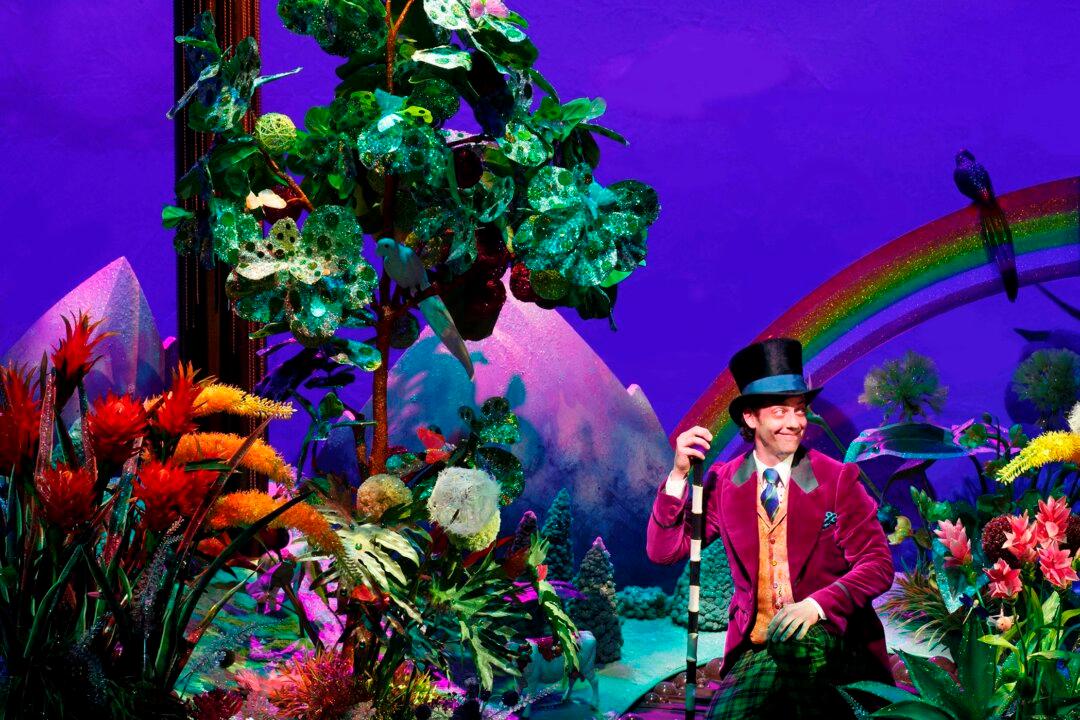NEW YORK—When the curtain rises to the music of “The Candy Man,” with Christian Borle appearing seconds later in a purple coat, green pants, and orange vest (not to mention a top hat and cane), the audience bursts into applause at seeing a childhood memory come to life. Sadly, the Broadway musical “Charlie and the Chocolate Factory” fails to keep faith with its source material, proving to be an uneven mixture of satire and wistfulness.
Young Charlie Bucket (Ryan Foust, who shares the role with Jake Ryan Flynn and Ryan Sell) lives with his widowed mother and four bedridden grandparents. The family is so poor, they can only afford secondhand vegetables for food. Charlie’s one escape is his love for all things chocolate. He constantly comes up with ideas for new confections. But due to his family’s limited resources, Charlie must content himself with one chocolate bar a year, which he receives on his birthday.





